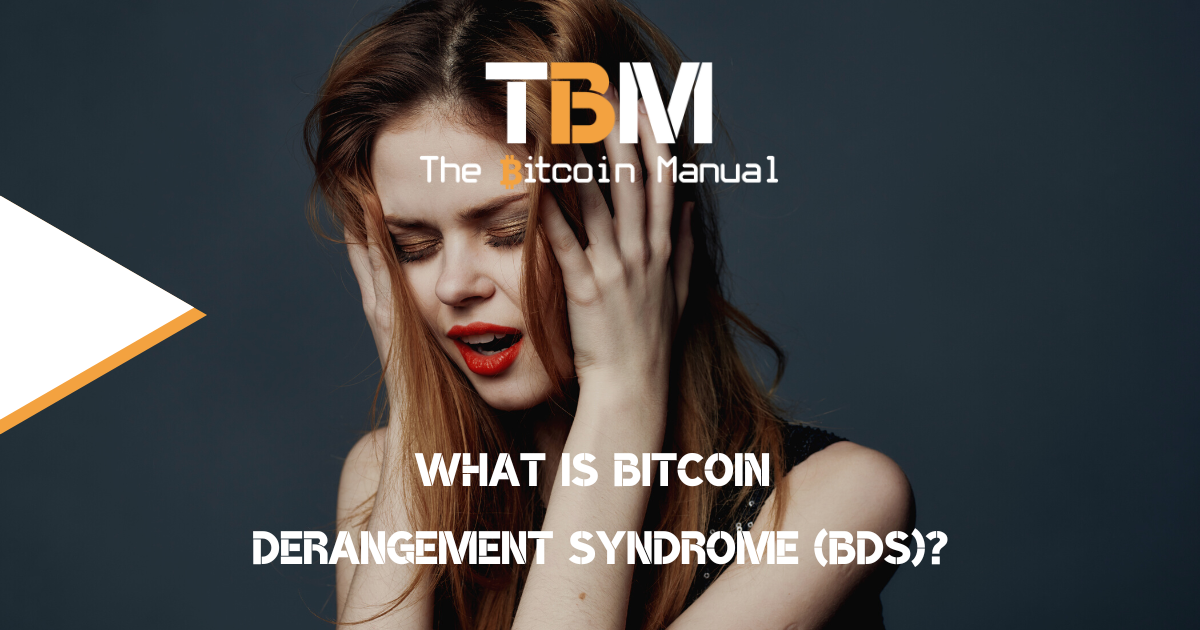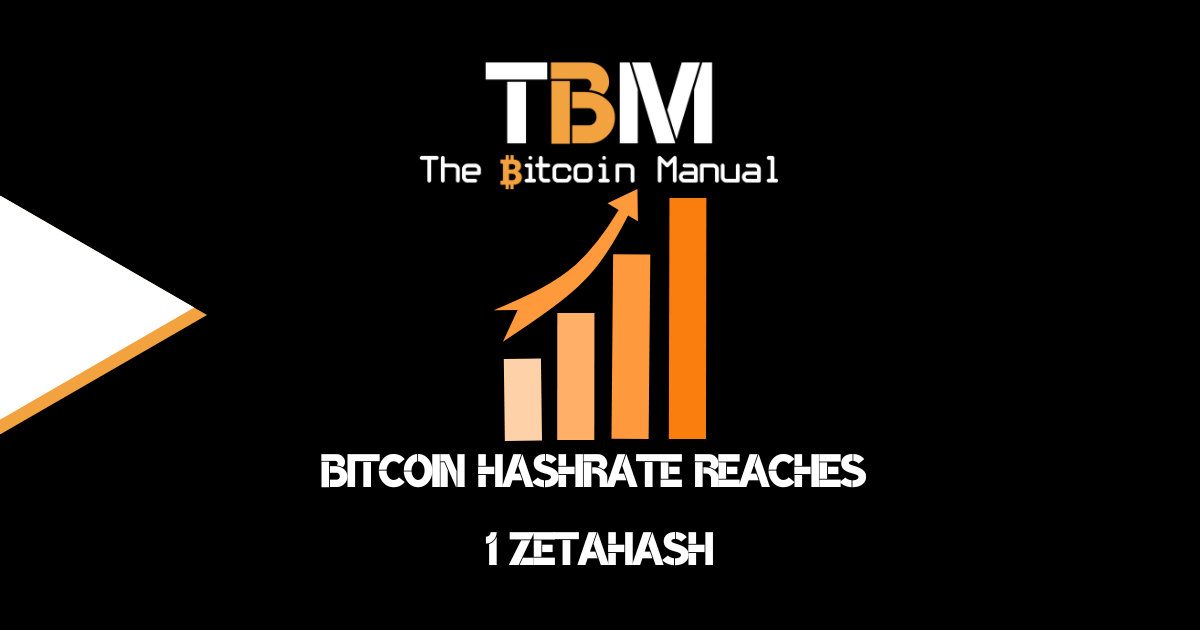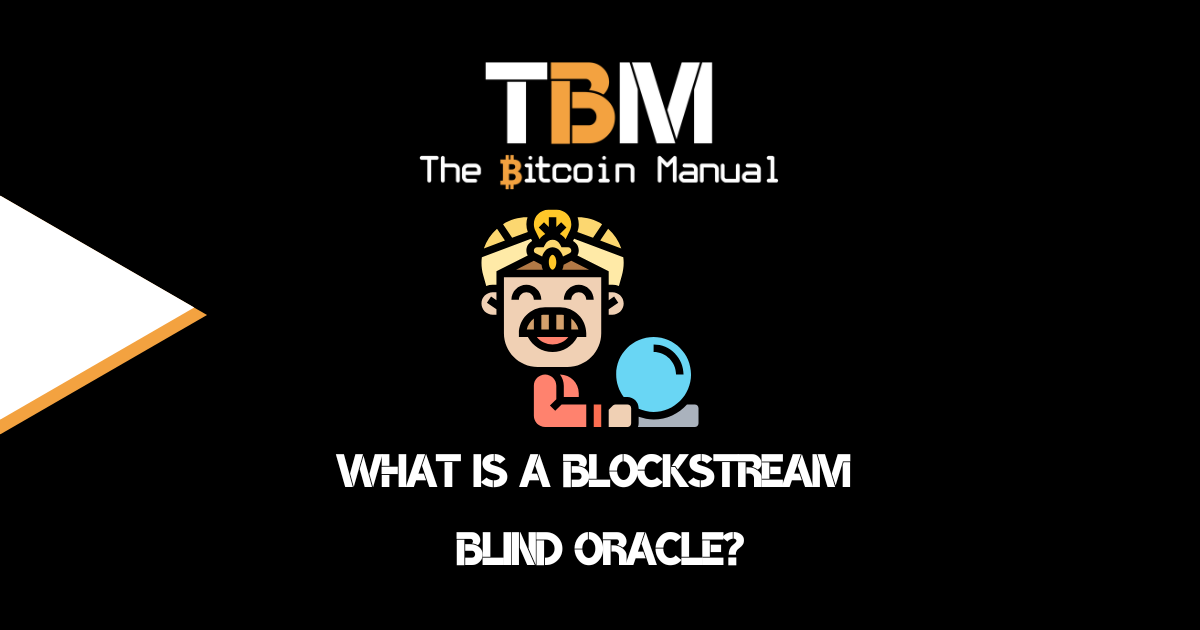Digital money has been a hot topic in recent years, with Bitcoin being at the forefront of the conversation. Bitcoin is now over a decade old and creeping ever closer to its second decade, with more users and more daily capital sloshing in and out of the network.
Ten years might sound like a long time for a technology adoption curve, but Bitcoin isn’t only a technology; it’s a monetary network with a native asset, and we’re still in the early stages of adoption and price discovery, clearly evident in the number of users and the price volatility.
While some people were quick to jump on the bandwagon and invest in this new digital currency, others were not so convinced. In fact, there are some who are vehemently opposed to Bitcoin and state their reputation, career and their money against its success, a phenomenon known as Bitcoin Derangement Syndrome (BDS).
But what is BDS really all about?
What is Bitcoin Derangement Syndrome?
Bitcoin Derangement Syndrome stems from a range of concerns, from the legitimacy of money, fears that it’s a Ponzi, that it’s a foreign government’s trojan horse, and that it’s a frenzy made for speculators to concerns over the environmental impact of mining.
Bitcoin Derangement Syndrome symptoms are the dismissal of any positive aspects related to Bitcoin along with an unrelenting urge to paint negative light. The syndrome appears to be the result of a gradual build-up of regret and feeling like they were too late in buying Bitcoin.
Instead of having the humility to accept they were wrong about Bitcoin, they now dedicate their time to hopeless attempts at attacking it and pushing for Bitcoin’s failure in a bid to prove themselves right.
It doesn’t matter if more individuals join the Bitcoin network, large companies join, small countries join, it doesn’t matter if it brings efficiency for global payments and those who use it do so of their own free will; BDS sufferers refuse to believe that individuals can act on their own, it must be some cult or the need to gamble.
There isn’t a single case you could make that would change their minds.
“Something like Bitcoin, it is a gambling token, and it doesn’t have any intrinsic value. But that doesn’t stop people from wanting to play the roulette wheel
Warren Buffet of Berkshire Hathaway
Nothing wrong with a little scepticism
Approaching Bitcoin with an open mind is important; you shouldn’t simply accept what the paid influencers tell you or what the mainstream media is paid to promote, and you should have a healthy dose of scepticism. There are far too many ways to have the rug yanked out under you in the Bitcoin space that you can’t afford to outsource your opinions and think you’re to be on the right side of the trade.
There’s nothing wrong with a little scepticism, and it’s essential to evaluate the pros and cons before jumping into any new investment. In Bitcoin, scepticism is welcome; you shouldn’t have to trust; you should try the network out for yourself, run a node, verify the code, create a wallet, find out how it works and then decide if this is something you want to use and own, but making a decision without getting your hands dirty is intellectually lazy.
While some people may be overly cautious or dismissive of Bitcoin, that’s okay; we all have our own path of self-discovery; it’s important to remember that being critical and questioning the status quo is not necessarily a bad thing.
If you have a critique of Bitcoin, explore it; if, in the end, Bitcoin stands up to your scrutiny, what do you have to lose? If you think there’s a critical flaw in Bitcoin, attack it; if you can destroy it, you’ll have won over an entire army of nocoiner acolytes who will sing your name to high heavens and praise you for your service.
But if you’re going to sit there and cry because you don’t understand how something works, then what really is the point of your opinion? What are you contributing?
“Of course I hate the bitcoin success. I don’t welcome a currency that’s so useful to kidnappers and extortionists and so forth. I think I should say modestly that the whole damn development is disgusting and contrary to the interests of civilization.”
Charlie Munger of Berkshire Hathaway
There is no such thing as risk-free.
Bitcoin, with a 13-year track record, currently sits at half a trillion dollars, and you would think that every year it survives, and every year that grows in monetary value stored and transactions cleared with impeccable uptime, you would think that people’s fears would be allayed. Yet when it comes to those suffering from BDS, all these positive metrics are seen as warning signs of impending doom for this asset.
While Bitcoin has a lot of potential as an investment opportunity, they are not without its risks. It’s understandable that some people may be sceptical of them, especially given their volatile nature and the lack of regulation. However, there is a difference between healthy scepticism and outright dismissal.
Ultimately, the key is to approach Bitcoin with humility, an open mind and a willingness to learn and explore alternative points of view. There’s no need to jump in blindly, but neither should we be dismissive of something just because it’s new or different.
In the end, Bitcoin is only a tool; if you use it foolishly or misuse it, you will only end up hurting yourself, and if you don’t learn to take personal responsibility, you might end up blaming Bitcoin for your mistakes.
The Origins of Bitcoin Derangement Syndrome
Bitcoin Derangement Syndrome (BDS) has become a common term used to describe scepticism and hostility towards Bitcoin. It’s important to understand that this phenomenon didn’t occur in a vacuum. The origins of BDS can be traced back to several factors, including the financial crisis of 2008, the nature of the tech industry, and the ideological differences between those who support and those who oppose Bitcoin.
The financial crisis of 2008, which led to the collapse of major financial institutions, left many people disillusioned with traditional banking and financial systems. Bitcoin emerged as an alternative to the centralised systems that had failed so many people. However, this very nature of Bitcoin as a decentralised system made it a threat to established institutions, leading to backlash from those who felt threatened by its potential to disrupt the status quo.
Additionally, the tech industry has a reputation for being volatile and unpredictable. This, combined with the fact that Bitcoin was created by an anonymous individual or group using the pseudonym Satoshi Nakamoto, made it difficult for many people to trust the technology if they could not understand the game theory and code behind it.
Moreover, the digital nature of Bitcoin made it seem intangible and hard to understand. This, in turn, led to a lack of understanding and a natural fear of the unknown.
Lastly, the ideological differences between those who support and oppose Bitcoin play a significant role in the emergence of BDS. Some people believe in the principles of decentralisation and individual freedom that Bitcoin represents, while others who have tied themselves to a statist position where money should be beholden to government policy view it as a tool for criminals and money launderers.
These differing viewpoints have created an environment where scepticism and distrust towards Bitcoin are prevalent.
What Triggers Bitcoin Derangement Syndrome?
Understanding the origins of Bitcoin Derangement Syndrome (BDS) is critical in identifying its triggers. Various factors contribute to the emergence of BDS, and these factors play a significant role in the widespread scepticism towards Bitcoin.
Fear of the unknown
One of the factors that trigger BDS is the fear of the unknown. Because Bitcoin is a relatively new concept, many people are still unaware of how it works and what its potential benefits and risks are. This fear of the unknown leads to scepticism and distrust towards Bitcoin.
Fiat and societal sunk costs
The ideological differences between those who support and oppose Bitcoin play a significant role in the emergence of BDS. Some people believe in the principles of decentralisation and individual freedom that Bitcoin represents, while others view it as a threat to the traditional financial system. These differing viewpoints have created an environment where scepticism and distrust towards Bitcoin are prevalent.
Many of us have spent our lives slaving away for fiat, saving in fiat and trying to invest in acquiring more fiat money. We’ve sunk so much of ourselves, our time, and our life and based decisions on this unit of account that it is hard to let go of the paradigm and look at a new way of storing your wealth.
Bitcoin requires personal responsibility.
In the fiat system, where we trade paper contracts based on trust, the unit representing the value can only be custodied with centralised entities like banks, so you’re offloading your risk and liabilities to a third party. If you lose your password, get hacked, or have your funds forced from you under duress, you can always approach the financial institution to try and recover funds, block accounts or reverse transactions.
In Bitcoin, you deal with the bearer asset; if you stuff up your custody, your funds are gone for good. Many of those with BDS fear this level of personal responsibility and long for the safety of custodians, and it stands to reason why they rally in support of these service providers.
I heard about Bitcoin, and I’m here to fix it.
Another form of BDS comes in the form of technologists, investors and speculators who look at Bitcoin and feel they can do better; they have no consideration for the trade-offs Bitcoin has made and feel that if you simply bypass certain things like increasing the block size or adding complex scripting that you could create a system that would supersede Bitcoin.
This idea has sparked a multi-billion dollar race to the bottom known as the altcoin market, where several failed attempts at surpassing Bitcoin trade their native token based on a specific narrative that they do something better than Bitcoin.
The Prevalence of Bitcoin Derangement Syndrome
Understanding the causes behind Bitcoin Derangement Syndrome (BDS) is important, but it’s equally important to recognise how widespread BDS actually is. While some people may dismiss BDS as a phenomenon affecting only a small subset of individuals, the reality is that it’s a much more pervasive issue since these voices get amplified to the general public, who aren’t equipped with the full story and simply accept the conveniently packaged story that Bitcoin is bad for *insert new reason*.
BDS can be found in a variety of different places, from mainstream media outlets to online forums and social media platforms. At times, it may seem like every news story or blog post about Bitcoin is accompanied by a chorus of negative comments and criticisms.
Part of the reason for this prevalence is simply the nature of social media itself. Platforms like Twitter and Reddit are designed to amplify voices, regardless of whether or not those voices are based on truth or reality. In this environment, it’s easy for a small group of individuals to dominate the conversation around a particular topic, even if their views are not representative of the broader population.
Additionally, the media plays a significant role in shaping public perception of Bitcoin. While some outlets have openly supported Bitcoin, they are few and far between; most have taken a more critical stance. Negative coverage also tends to get more reach in major news outlets and can further fuel scepticism and distrust among the general population, leading to a self-perpetuating cycle of negativity.
Personally, I don’t mind the negative news cycle since anything that suppresses demand for Bitcoin is great for those looking to stack long-term, but it does harm those who might have been curious or on the fence; they might not take the plunge into learning because today Bitcoin is boiling the oceans or tomorrow FUD it’s Bitcoin funds the terrorists.
Myths and Realities that feul Bitcoin Derangement Syndrome
Despite the growing popularity and adoption of Bitcoin, there are still many myths and misconceptions surrounding Bitcoin, which can fuel Bitcoin Derangement Syndrome (BDS). It’s important to clarify these myths and separate fact from fiction when it comes to evaluating the potential of Bitcoin.
It’s money for criminals.
One of the most common myths surrounding Bitcoin is that it is only useful for illegal activities such as money laundering, drug trafficking, and terrorism financing. While it’s true that Bitcoin provides a level of anonymity and privacy, it’s important to note that the vast majority of Bitcoin transactions are completely legitimate and legal.
In fact, many businesses and individuals around the world use Bitcoin as a way to conduct transactions faster, cheaper, and more securely than traditional payment methods.
It has no intrinsic value.
Another common misconception surrounding Bitcoin is that it has no intrinsic value and is, therefore, a speculative bubble that’s bound to burst. While it’s true that Bitcoin’s price is highly volatile and subject to market speculation, it’s important to note that Bitcoin has many unique properties that give it value.
For example, Bitcoin is decentralised, meaning it’s not controlled by any government or institution. Bitcoin is also limited in supply, with only 21 million bitcoins ever to be minted, which gives it scarcity and value.
It’s too complex for normies.
Some critics argue that Bitcoin is too complicated and difficult to understand, making it unsuitable for mainstream adoption. While it’s true that Bitcoin can be technically complex for the average normie, there are many resources available to help people understand and use it. Moreover, as more businesses and individuals adopt Bitcoin, the user experience is likely to improve and become more user-friendly.
No technology starts with universal adoption; as more people come in and request Bitcoin, so will more service providers, merchants and vendors support it, and with so much open source development already in the works, the code is available for them to slot into their systems when they are ready.
BDS won’t be going away anytime soon
Bitcoin Derangement Syndrome is just a buzzword but a phenomenon that deserves our attention. Many high-profile BDS sufferers are pushing narratives based on the fact that they can’t separate themselves from their detest of Bitcoin. Since these detractors have a reputation, political capital, social capital and most times capital that would be demonetised if Bitcoins succeeds and they fail to pivot, you can start to see their opinions for what it is, their lizard brain lashing out as a survival instinct.
The nocoiner feels threatened, and they should be; you’ve taken a stand against the Apex predator of money, so you best be right.
While you can’t do much about these talking heads and captains of crony capitalism who have major fiat bags, they are keen to protect at all costs; you can do something about your friends and family who grab the Warren Buffer-like sound bites and parrot it as their own thought.
Rather than dismissing sceptics as irrational, we should strive to understand the underlying reasons driving their opposition to Bitcoin. By separating fact from fiction and engaging in productive dialogue, and creating educational content, we can make progress towards a greater understanding and adoption of Bitcoin in the mainstream.




